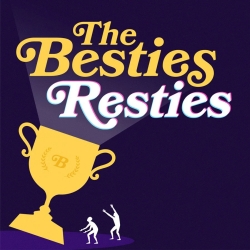 Justin McElroy, Griffin McElroy, Chris Plante, and Russ Frushtick host The Besties, a podcast where they talk about “the best game of the week” every week.
Justin McElroy, Griffin McElroy, Chris Plante, and Russ Frushtick host The Besties, a podcast where they talk about “the best game of the week” every week.
The Besties is part of the sprawling McElroy media empire, but episodes produced solely by the non-McElroy members of the show appear as a spinoff show known as The Resties, and for the last 18 months they’ve been sporadically adding games to “The Resties Required Reading List“.
Not a Best Games list, the “Required Reading List” is a collection of titles that serve as the best introduction to the wider world of video games. Plante likes to refer to it as “a syllabus for Video Games 101” and further described the project like this…
Our goal is to curate and contextualize a “must play” list of 25 games released between 1980 to 2020. These aren’t the best games or even our favorite games. They’re the games that should be experienced by everyone who wants a fundamental appreciation of the medium. They’re the games that will give you a richer connection with every other game you play.
Plante and Frushtick split the “Required Reading List” into eight episodes, each covering a five-year span that lands somewhere between 1980 and 2020. Within these smaller chunks of time they picked two-to-four games that best represent the era and a specific corner of gaming they wanted to highlight. In the end, 28 games made it through these mini-debates before the hosts cut three titles to reach their 25-game goal. Counter-Strike (from the 2000-2004 episode), along with Hearthstone and Spelunky HD (both from the 2010-2014 episode) ultimately ended up on the chopping block.
So which games did make the grade? You’ll find all the foundational classics from the 1980s (Pac-Man, Tetris, Super Mario Bros., and The Legend of Zelda), as well as the modern games that are currently moving the needle (Fortnite, The Legend of Zelda: Breath of the Wild, and Outer Wilds). In between there’s Doom (1993), Pokemon Red/Blue, Resident Evil 4 (2005), Minecraft, and more than a dozen others.
Wanting to argue with a Best Games list is the most natural reaction in the world, but it’s hard to quibble with any of the choices on “The Resties Required Reading List” as the games you need to play to best understand the history of games. Or, to steal a phrase from one of The Resties, the “Required Reading List” is a way of “thinking about the countless ways games inform our lives, our culture, and future creators”.
You can see all 25 games from “The Resties Required Reading List” after the break.


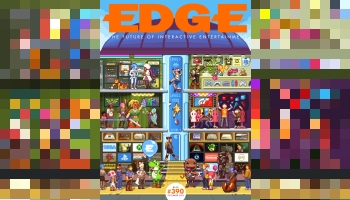
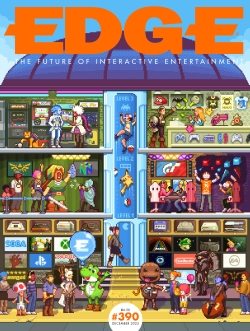 The magazine racks at your local bookstore (or even your local Barnes & Noble) are mostly empty these days. And that’s doubly-true for game-focused publications like Nintendo Power, GamePro, and Electronic Gaming Monthly, all of which closed down more than a decade ago.
The magazine racks at your local bookstore (or even your local Barnes & Noble) are mostly empty these days. And that’s doubly-true for game-focused publications like Nintendo Power, GamePro, and Electronic Gaming Monthly, all of which closed down more than a decade ago.

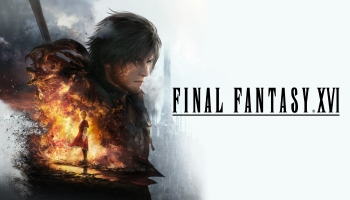

 The Times delivered its first daily edition to the people of London all the way back in 1785. The newspaper has reported on some of the biggest stories the world has ever seen in the nearly 240 years since, and they’ve given space to pieces from a very distinguished array of writers over the centuries, including Charles Dickens, Sir Arthur Conan Doyle, Oscar Wilde, and Albert Einstein.
The Times delivered its first daily edition to the people of London all the way back in 1785. The newspaper has reported on some of the biggest stories the world has ever seen in the nearly 240 years since, and they’ve given space to pieces from a very distinguished array of writers over the centuries, including Charles Dickens, Sir Arthur Conan Doyle, Oscar Wilde, and Albert Einstein.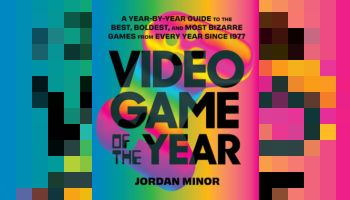
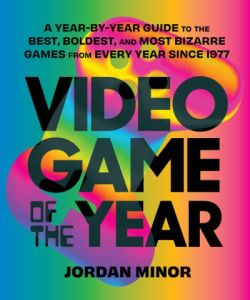 PC Magazine’s Jordan Minor will publish his first book in 2023, and for the subject of this tome, the journalist has zeroed in one that’s very near and dear to my heart.
PC Magazine’s Jordan Minor will publish his first book in 2023, and for the subject of this tome, the journalist has zeroed in one that’s very near and dear to my heart.



 The Xbox Series X|S and the PS5 are steamrolling their way towards store shelves this November, and earlier this month, GameSpot became one of the first outlets to produce a retrospective of the generation we’re about to leave behind. Or are we? With cross-platform compatibility more important than ever, and the Switch still going strong, the upcoming generation will probably look a lot like our current one.
The Xbox Series X|S and the PS5 are steamrolling their way towards store shelves this November, and earlier this month, GameSpot became one of the first outlets to produce a retrospective of the generation we’re about to leave behind. Or are we? With cross-platform compatibility more important than ever, and the Switch still going strong, the upcoming generation will probably look a lot like our current one.